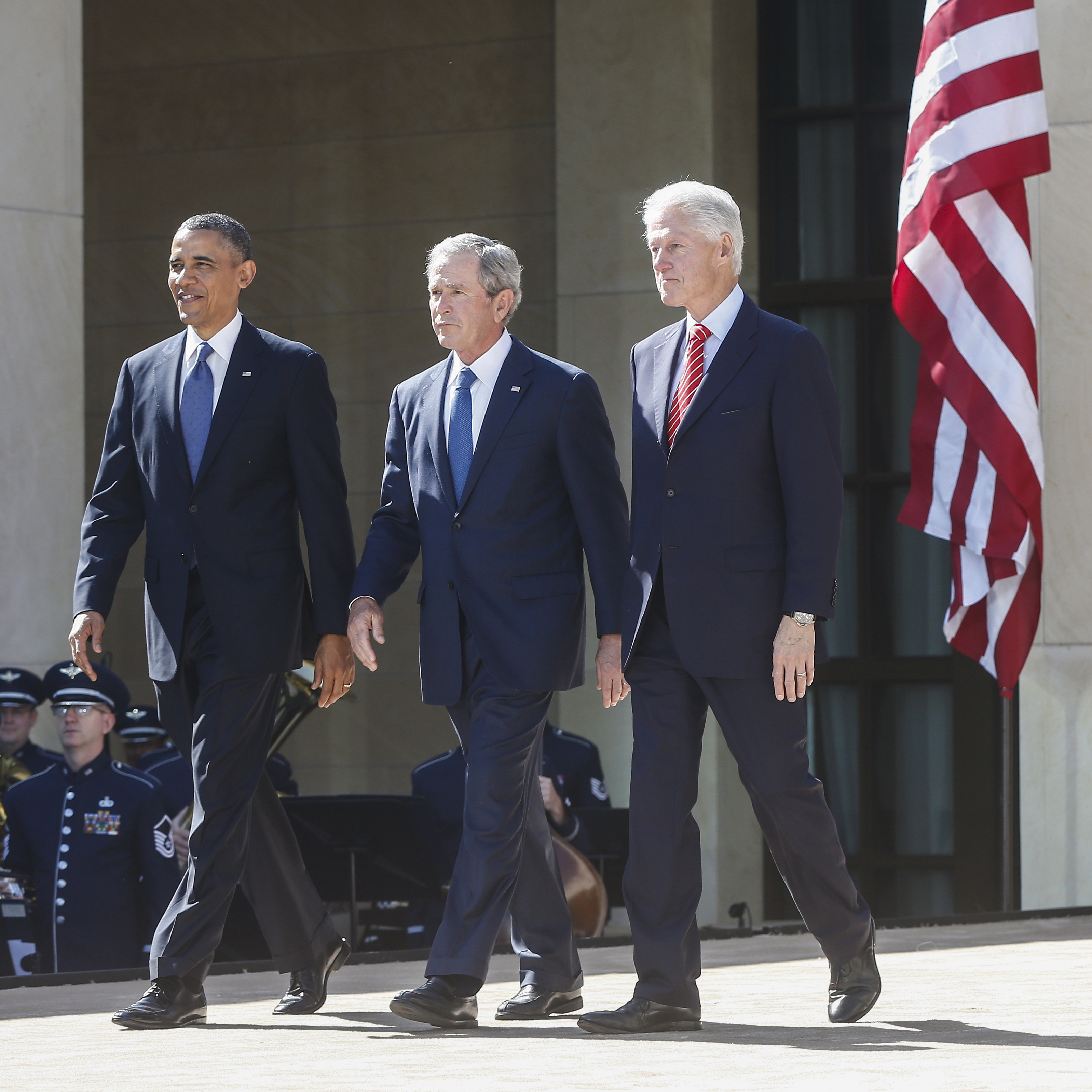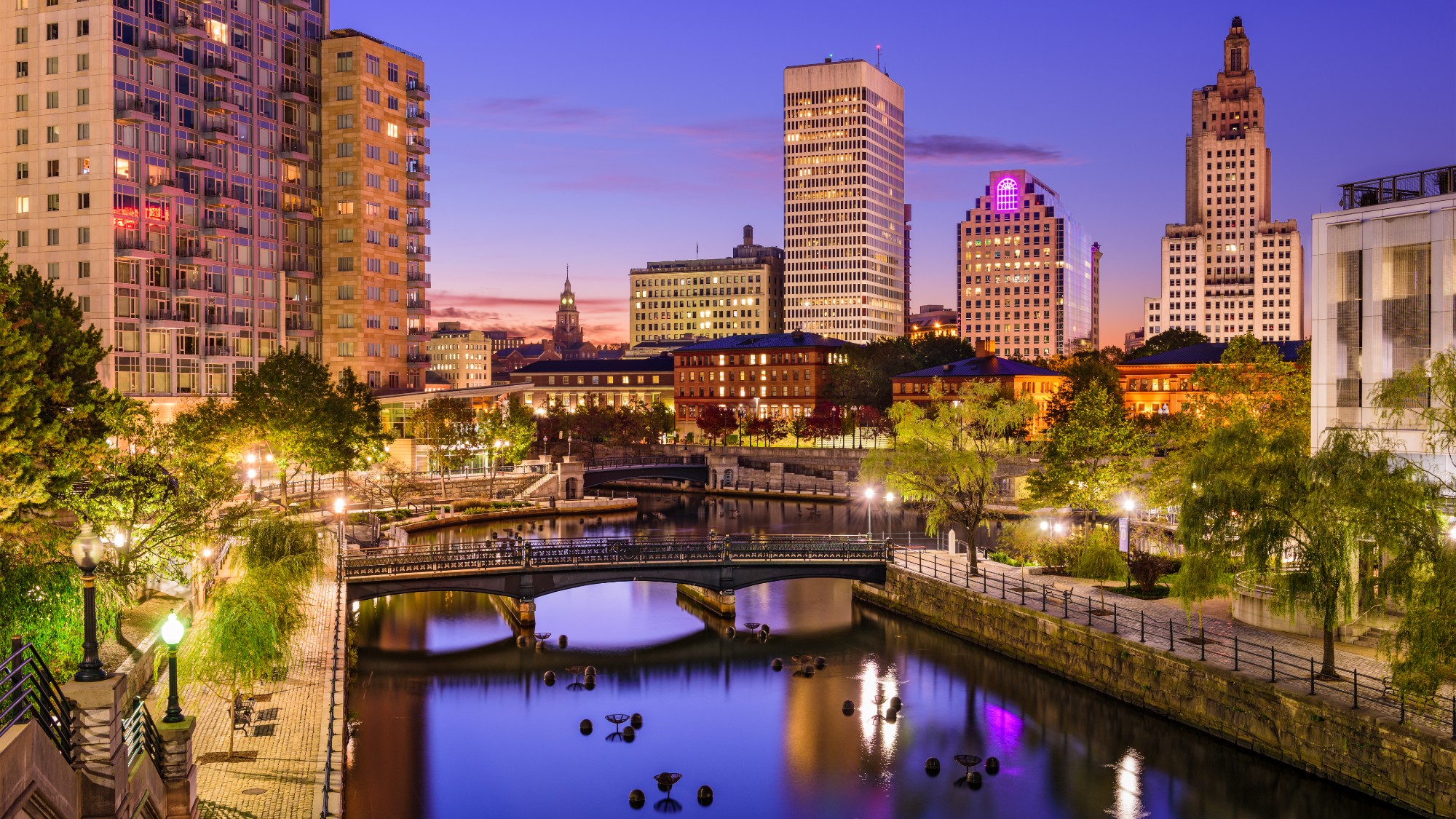It's time for America's ex-presidents to team up against Trump
Jimmy Carter, George H.W. Bush, Bill Clinton, George W. Bush, Barack Obama — assemble!


The idea that American presidents must basically go into occultation, focus on memoir-writing, or transform themselves into nonpartisan cheerleaders for various uncontroversial causes is deeply engrained in American culture. From George Washington retiring back to his plantation to Harry Truman and Lyndon Johnson basically disappearing from the public eye altogether to George W. Bush becoming a quietly reflective painter, few ex-presidents have remained active in the country's political life after leaving office. Citizens don't generally want someone who dominated public debates for four or eight years interfering with the workings of a new administration, one that typically enters office with a temporary surfeit of goodwill and popularity that crosses party lines. Even popular presidents have typically worn out their welcome by the time they leave.
In normal times, this makes a certain kind of sense. New presidents should, ideally, be granted time to fulfill their campaign promises and enact sensible public policy without the last president hovering over their shoulders like latte-addled helicopter parents. And even presidents who left office ostracized and alone have, over time, gradually become unifying figures, in part because they are free to pursue hobbies or endeavors that are not related to divisive party politics. With their high-minded departure from the boxing ring of politics, they communicate to the public that our differences are not so profound after all. This is to say nothing of the total exhaustion most presidents feel after serving one or two terms in office.
Their unique stature in American public life gives ex-presidents the power to successfully pursue transformative projects, like Bill Clinton's efforts to combat poverty with the Clinton Global Initiative, or Jimmy Carter's long and selfless efforts to build housing for the homeless. Their good works often restore the popularity they lost as president. Jimmy Carter suffered one of the worst landslide defeats in presidential history to Ronald Reagan in 1980, yet in 2011 a whopping 69 percent of Americans looked at him positively.
Subscribe to The Week
Escape your echo chamber. Get the facts behind the news, plus analysis from multiple perspectives.

Sign up for The Week's Free Newsletters
From our morning news briefing to a weekly Good News Newsletter, get the best of The Week delivered directly to your inbox.
From our morning news briefing to a weekly Good News Newsletter, get the best of The Week delivered directly to your inbox.
When George W. Bush left office in 2009, his Gallup approval rating was just 34 percent. Yet the day he left office, his popularity began a long migration upward. Today, 59 percent of Americans express a favorable view of America's 43rd president, something that was completely unthinkable when he handed the steaming ruin of America's future over to Barack Obama. Apparently, people really dig this new quiet W. If you don't think too hard about the generational wreckage he inflicted on this country, you might just like him too.
So yes, in normal times, with normal presidents, this tradition makes sense. But these are not normal times. And Donald Trump is not a normal president.
Trump is busy shredding just about every important norm of American politics — both formal rules restraining executive power and unspoken norms that guide presidential behavior. The president has also made a point of threatening his vanquished general election opponent, impugning the integrity of federal judges, and encouraging law enforcement officers to assault citizens. He continues to publicly trash the outgoing administration of Barack Obama, something that isn't illegal but that is profoundly troubling. When the president wiped away the crimes of the sadistic lawbreaker Joe Arpaio, he upended a long tradition of the president waiting years to issue his first pardon. His outrageous behavior suggests strongly that once he is out of office, he is going to go right back to making obscene attacks on the next Democratic president, using his Twitter account as a cudgel to turn the public against its leaders.
That's why the relative silence of America's five surviving ex-presidents is so deafening. While Barack Obama has released the occasional statement critical of particular policies, he has not, so far, shown any willingness to directly attack the Trump administration's multiple-front war on American democracy and decency. And while the Bushes reportedly are horrified by this presidency, they have thus far refrained from making their displeasure clearly known to the people.
That needs to change.
It is precisely the high standing of former presidents that should lead them to get off the sidelines and into the fight. The Bushes in particular are highly regarded by Republicans, the very people who need to turn on President Trump if he is to be fully isolated politically. It might be difficult to fight their way through the thick Breitbartian jungle of informational obfuscation and racist fervor, but if anyone can do it, it is former presidents who once won the votes and admiration of such people. And while they would probably prefer to spend their final years on Earth relaxing and basking in public adoration, the truth is that we need them now.
There is no law against former presidents joining forces to demand that President Trump release his taxes, to condemn his lawless obstruction of justice in the Russia investigation, and to publicly criticize the administration's cruel efforts to disenfranchise voters and deport millions of aspiring Americans. And if the president and his minions in Congress have proven anything, it is that if there isn't a law against something, it can be done. Someone like George W. Bush repudiating Trump's reckless withdrawal from the Paris Agreement would have a real impact on the public debate. George H.W. Bush issuing a public statement impugning Trump's dangerous handling of the North Korea crisis could likewise break through the closed hearts of Trump's base and alert them to the gathering danger of foolhardy statesmanship.
For Obama's part, he surely does not want to capture a share of the spotlight that needs to go to emerging Democratic leaders in Congress and governor's mansions across the country. But there is no reason for him not to make his displeasure with this administration's policies known, much more often and in much sharper terms. Obama has his car sitting at the crest of the High Road. He needs to get in and drive it back down into the scrum. Restoring the legitimacy of those norms is going to be critical both in holding Trump accountable and in ensuring that the next president voluntarily observes rules that are currently being broken without any consequence whatsoever.
Ideally, all five living ex-presidents would join forces to criticize the president's abuses of power. But Carter and George H.W. Bush are both elderly and in poor health. We can't necessarily expect too much from them. Bill Clinton, George W. Bush, and Barack Obama, on the other hand, are spry and still able to travel and raise awareness of this president's crimes and misdemeanors.
The time is now. As Obama used to say, "We can't wait."
Sign up for Today's Best Articles in your inbox
A free daily email with the biggest news stories of the day – and the best features from TheWeek.com
David Faris is an associate professor of political science at Roosevelt University and the author of It's Time to Fight Dirty: How Democrats Can Build a Lasting Majority in American Politics. He is a frequent contributor to Informed Comment, and his work has appeared in the Chicago Sun-Times, The Christian Science Monitor, and Indy Week.
-
 Do smartphone bans in schools work?
Do smartphone bans in schools work?The Explainer Trials in UK, New Zealand, France and the US found prohibition may be only part of the solution
-
 Doom: The Dark Ages – an 'exhilarating' prequel
Doom: The Dark Ages – an 'exhilarating' prequelThe Week Recommends Legendary shooter adds new combat options from timed parries to melee attacks and a 'particularly satisfying' shield charge
-
 7 US cities to explore on a microtrip
7 US cities to explore on a microtripThe Week Recommends Not enough vacation days? No problem.
-
 The JFK files: the truth at last?
The JFK files: the truth at last?In The Spotlight More than 64,000 previously classified documents relating the 1963 assassination of John F. Kennedy have been released by the Trump administration
-
 'Seriously, not literally': how should the world take Donald Trump?
'Seriously, not literally': how should the world take Donald Trump?Today's big question White House rhetoric and reality look likely to become increasingly blurred
-
 Will Trump's 'madman' strategy pay off?
Will Trump's 'madman' strategy pay off?Today's Big Question Incoming US president likes to seem unpredictable but, this time round, world leaders could be wise to his playbook
-
 Democrats vs. Republicans: who are the billionaires backing?
Democrats vs. Republicans: who are the billionaires backing?The Explainer Younger tech titans join 'boys' club throwing money and support' behind President Trump, while older plutocrats quietly rebuke new administration
-
 US election: where things stand with one week to go
US election: where things stand with one week to goThe Explainer Harris' lead in the polls has been narrowing in Trump's favour, but her campaign remains 'cautiously optimistic'
-
 Is Trump okay?
Is Trump okay?Today's Big Question Former president's mental fitness and alleged cognitive decline firmly back in the spotlight after 'bizarre' town hall event
-
 The life and times of Kamala Harris
The life and times of Kamala HarrisThe Explainer The vice-president is narrowly leading the race to become the next US president. How did she get to where she is now?
-
 Will 'weirdly civil' VP debate move dial in US election?
Will 'weirdly civil' VP debate move dial in US election?Today's Big Question 'Diametrically opposed' candidates showed 'a lot of commonality' on some issues, but offered competing visions for America's future and democracy